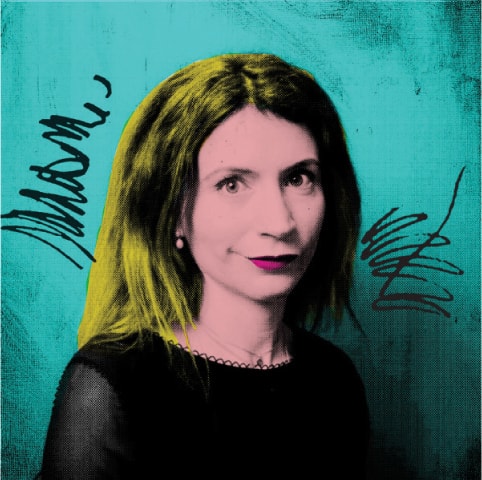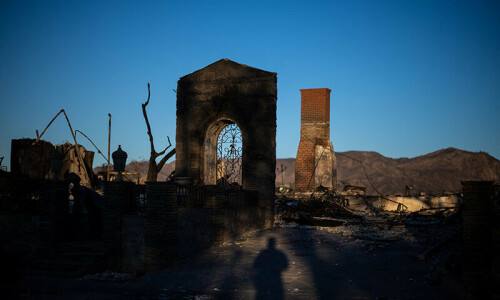
Regular readers will know I’ve been thinking about pandemic literature since Covid-19 went global in early 2020. A lucky find is Under the Blue by Oana Aristide. With roots in Greece, Romania, Yemen and Sweden, Aristide lives part of the year in London and part on the Greek island of Syros where, with her sister, she runs an eco-friendly hotel.
Under the Blue, her debut novel, came out in March 2021, but she started writing it in 2017. Many of the book’s vignettes have eerie counterparts in events from the last 21 months. Indeed, in her ‘Afterword: A Plague of Coincidences’, Aristide wryly describes herself as “a kind of slowpoke Nostradamus, producing prophecies that are too late out of the gate.”
Especially chilling is the novel’s early section. Harry is an ageing artist holed up in his late nephew’s London flat. By way of atonement for not knowing his nephew well in life, he tries to paint the perfect portrait of the young man who had died in a drink-driving accident. So absorbed is Harry in his aesthetic realm and, readers suspect, his own alcoholism, that he barely keeps up with current affairs. His news blackout means he’s unaware the something frightening is unfolding on the world stage.
One day, Harry is baffled to see Ash — the much younger neighbour on whom he has a crush — burst into her apartment in tears. He doesn’t see her in their block after that, but soon starts noticing people rushing through the streets, not only wearing face coverings but also, sometimes, gas masks. He realises his need to flee the “man-made beauty” of the city that he loves, now that almost everyone in his building has disappeared. It turns out that a universally lethal lung virus has beset humanity, causing mass deaths at startling speed.
Until he inherited the London pad, Harry lived in a cottage in Devon. He had once encouraged Ash to visit the place, giving her its address and describing the area as a “bucolic paradise.” Harry now makes a hellish journey there through deserted streets dotted with bodies. The silence is occasionally broken by violent or diseased marauders, one of whom nearly invades his car.
Yet, southwest England is not the rural idyll he had been hoping for. There Harry imagines himself milking the local cow, but she has engorged udders and chases him ferociously. Instead of fresh milk, he subsists on cans of fish from his pantry, one of which gives him a bout of food poisoning that he mistakes for the virus. When he tries to greet a neighbouring farmer, the man shoots at Harry, grazing his palm. The cow drops dead from neglect and, in a magnificently horrific scene, Harry exhausts and disgusts himself as he has to bury her putrefying body.
It is around this time that Harry’s fantasy appears to have come true because Ash turns up, tired and terrified, at the cottage. She’s not alone, though, but is accompanied by her sister, Jessie. Harry takes an immediate dislike to this doctor and green activist for what he sees as her unattractiveness and caustic way of speaking. Lacking other options, they live in an awkward ménage à trois for a few months.
In parallel with the plague that seems to have come out of the blue, the skies are remarkably bright for England. It is a heatwave that never lets up this oppressive summer. Later, in mainland Europe, Harry will mix a rank cocktail for himself and the girls from some dusty bottles of spirits he finds in an abandoned bar. He names it “Apocalypse Blue”, and Ash declares the drink “tastes of death and sunshine.”
It is under the hot sun of France that the girls take a dip in an azure lake. It transpires that this has been poisoned with chemicals. They only just escape with their lives, Jessie badly burnt.
More positively, near Paris the three commandeer a better car than Harry’s old banger, imagining that this stately and well-maintained Mercedes had been owned by a Monsieur Jacques. The character becomes a running joke between them but, before long, Harry feels Jessie is ruining the game with sarcastic remarks about Monsieur Jacques’s petrolhead selfishness.
Jessie also blames their invented car-owner for the single-use bottles littering rivers glimpsed through the vehicle’s windows. Meanwhile, our unreliable focaliser, Harry, thinks, “Plastic is amazing”, as they find some water bottles that have survived despite proximity to one of many raging forest fires.
The group has left the United Kingdom for mainland Europe en route to Africa, because the girls inform Harry that the virus isn’t the only thing threatening them. Nuclear disaster also looms, given that power plants now have no one to man them. With its long history of underdevelopment, the African continent has hardly any atomic energy. It may therefore be the only safe space on the globe. What’s more, their conservationist mother had been working in central Africa before Armageddon hit, and there’s an outside chance she might still be alive.
As their road trip drags on, Ash’s trauma from the sexual violence visited on her and Jessie during their own nightmarish journey from London to Devon resurfaces. First, she starts to scratch deep wounds in her arms at night. Then, she develops an eating disorder when, not heeding the survival instinct, she feels revulsion towards meat. The only foods she craves are vegetarian provisions they cannot forage: “green salad … gazpacho.”
If one compares Under the Blue to Cormac McCarthy’s classic post-apocalyptic text The Road, they share the leitmotifs of the lake, forest fire and road. However, Aristide rejects McCarthy’s rugged individualism and masculinism. More than that, her female characters eschew the enthusiasm for meat and the nuclear family shown by the American novelist’s father-and-son protagonists.
What I find most prophetic about Aristide’s book is the attention paid to climate change. While McCarthy erases it as an issue, many post-apocalyptic novelists pay lip-service to the role the destruction of the environment plays in diseases’ jump from animals to humans, and their spread between people. But never have I seen such sustained attention to nature and its despoilation, and to green politics.
Aristide suggests that environmental damage is a kind of self-harm. The way we are wrecking this planet on which we have to live is akin to Ash’s suicidal impulse. Ultimately, this Nostradamus novelist calls out a slow violence that is quickly accelerating.
The columnist is professor of Global Literature at the University of York, and author of three books, including Rivers of Ink: Selected Essays
Published in Dawn, Books & Authors, November 28th, 2021














































Dear visitor, the comments section is undergoing an overhaul and will return soon.